Last updated on July 6th, 2025 at 05:40 pm
Why Visit Corfu?
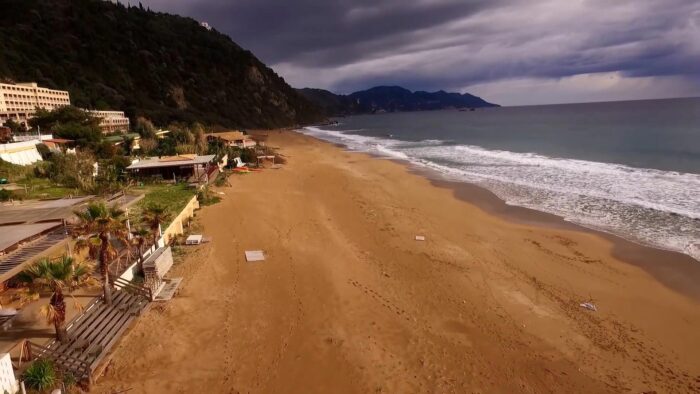
Corfu boasts a collection of unique features that you won’t discover anywhere else in Greece. Among the most significant are:
1. Lush Landscape
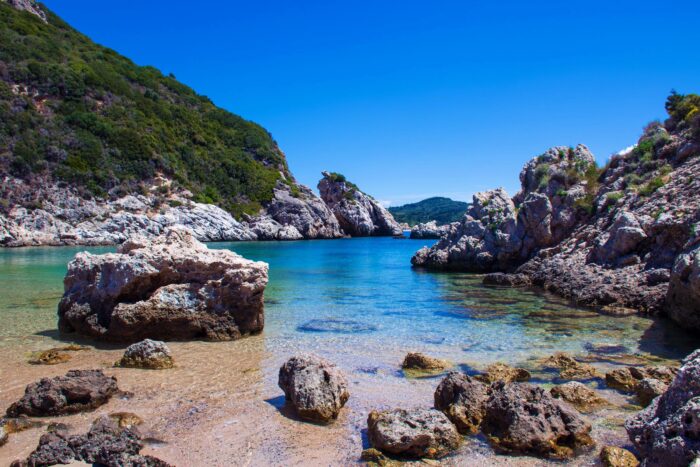
Corfu’s landscape is truly a testament to the awe-inspiring artistry of nature, presenting a captivating masterpiece that seamlessly weaves together an array of breathtaking elements. This enchanting island in the Ionian Sea unfolds like a canvas, showcasing a rich tapestry of diverse terrains that beckon exploration and appreciation.
The sandy beaches, kissed by the gentle caress of the turquoise waves, stand as inviting shores where sun-seekers can bask in the warmth of the Mediterranean sun. Each grain of sand seems to tell a story of countless tides and whispers the secrets of the sea, creating a serene ambiance that captivates the soul.
As you venture inland, Corfu’s rugged mountains rise majestically, their peaks reaching towards the heavens. These formidable giants, etched with the marks of time, provide a stark contrast to the tranquil coastal plains. The craggy cliffs and undulating slopes tell tales of ancient battles and resilient flora, making every ascent a journey through the island’s storied past.
Wandering through the countryside, one encounters the symphony of rustling leaves and the intoxicating aroma of olives in the air. Verdant olive groves stretch as far as the eye can see, their silvery branches weaving a luscious tapestry across the landscape. These ancient trees, with their twisted trunks and silvery leaves, have stood witness to centuries of history, embodying the enduring spirit of Corfu’s people.
The harmonious marriage of these diverse terrains creates a scenic paradise that is both bewitching and utterly unique. Corfu invites travelers to immerse themselves in a world where nature’s brushstrokes have painted a canvas of unparalleled beauty. Whether lounging on the sun-drenched beaches, scaling the heights of mountainous vistas, or strolling through the age-old olive orchards, visitors are sure to find themselves enchanted by the allure of Corfu’s natural masterpiece.
2. Turbulent History
Corfu’s history is a rich tapestry woven with the threads of conquests and influences from various colonial rulers spanning millennia. From ancient Greek origins to Byzantine, Venetian, French, and British occupations, each era has etched its mark on the island’s architecture, culture, and identity. The Old Town, a UNESCO World Heritage Site, showcases this historical diversity with a blend of ancient ruins, Venetian fortresses, and neoclassical gems, creating a unique visual journey through time.
Culturally, Corfu is a dynamic crossroads where traditions, festivals, and cuisine reflect the amalgamation of diverse influences. The island’s resilient people have not only preserved their distinct heritage but also embraced the harmonious blend of customs from each chapter in its history. Corfu thus emerges as a living testament to the enduring spirit of a place that has gracefully integrated the layers of its past into a vibrant and captivating present.
3. Corfiot Cuisine

Corfu’s culinary landscape is a testament to the harmonious fusion of Venetian and Greek influences, giving rise to a distinct array of dishes that tantalize the taste buds with a rich tapestry of flavors. The island’s gastronomic heritage gracefully weaves together the bold spices and aromatic herbs of Greek cuisine with the sophisticated techniques and ingredients introduced by the Venetians during their historical rule. This unique blend is evident in iconic dishes like pastitsada, where the hearty flavors of slow-cooked meat meld seamlessly with the robust notes of local spices and the Venetian touch of pasta.
Another culinary gem, bourdeto, reflects the island’s maritime history. This spicy fish stew, enriched with local red pepper, showcases the seamless integration of Greek seafood traditions with Venetian culinary nuances. The result is a culinary symphony that encapsulates Corfu’s identity, inviting both locals and visitors to savor a journey through time and cultural exchange with every delectable bite.
4. Tourism Hub
Corfu stands as a beacon of hospitality, its robust tourist infrastructure elevating it to the status of a premier destination in Greece. The island boasts an impressive array of luxury hotels that set a standard for opulence and comfort, drawing discerning travelers from around the world. From idyllic seaside resorts with breathtaking views to historic boutique hotels nestled in the heart of the Old Town, Corfu’s accommodations reflect a commitment to excellence that places it among the foremost destinations for those seeking a sophisticated and indulgent retreat.
The island’s foresight in embracing tourism has been a pioneering force, transforming Corfu into a thriving hub for the travel industry. By recognizing the potential of its natural beauty and cultural heritage, Corfu has not only preserved its historical charm but has also positioned itself as a dynamic and welcoming destination. The symbiotic relationship between Corfu’s enchanting allure and its well-developed tourist infrastructure creates an inviting tapestry for visitors, ensuring that the island remains a sought-after haven for those seeking a blend of luxury, history, and unparalleled natural beauty.
5. Historical Landmarks
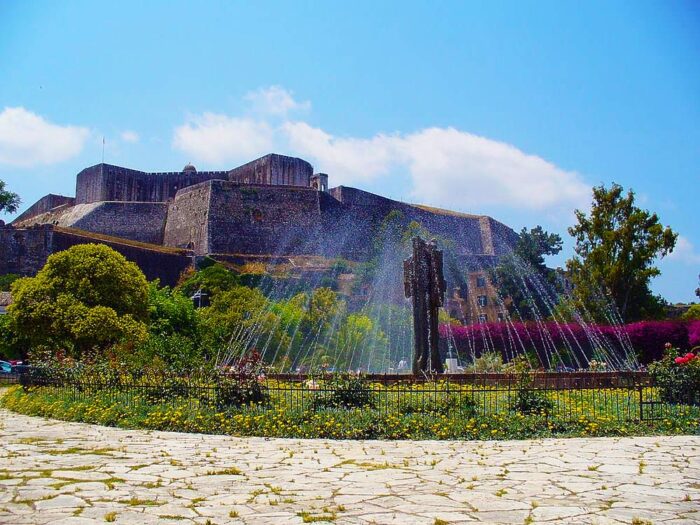
The town of Corfu stands as a living testament to history, its essence encapsulated within the protective embrace of castle walls. These formidable structures not only serve as guardians of the town but also unfold a captivating narrative of the island’s past. The labyrinthine alleys, medieval ramparts, and strategic fortifications create an immersive experience, allowing visitors to stroll through the pages of time and witness the echoes of bygone eras.
Within this historical enclave, iconic landmarks such as the Ionian Academy and the San Giacomo theater shine as beacons of cultural distinction. The Ionian Academy, with its neoclassical grandeur, proudly holds the title of being the first university in modern Greece, symbolizing Corfu’s intellectual prominence. Similarly, the San Giacomo theater, with its rich architectural heritage, stands as the inaugural theater in the country, contributing to the island’s cultural legacy. These landmarks not only enrich Corfu’s historical significance but also serve as living monuments, inviting present-day admirers to connect with the pioneering spirit that has shaped the island’s unique identity.
6. Cultural Haven
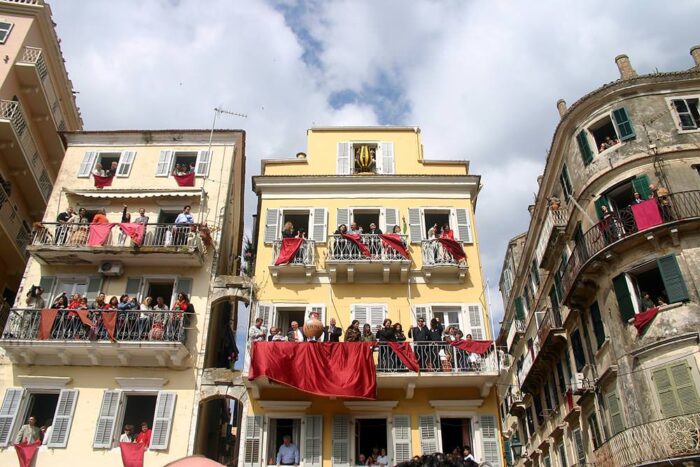
Corfu emerges as a vibrant melting pot, distinguished by a rich amalgamation of musical and intellectual traditions surpassing those of any other region in Greece. The island’s cultural tapestry, woven with diverse influences, creates a dynamic environment where artistic expression flourishes, making Corfu a captivating haven for those seeking a deeper connection with Greece’s cultural legacy.
Adding a distinct brushstroke to Corfu’s cultural canvas is the imposing Palace of Saints Michael and George. This architectural marvel, adorned with a unique Georgian style, originally served as the residence of British High Commissioners. Now a cultural hub, it hosts exhibitions and events, and houses the Museum of Asian Art, underscoring the island’s commitment to preserving and showcasing its multifaceted cultural heritage.
Corfu’s cultural landscape is enriched by its vibrant musical and intellectual traditions, fostering creativity and innovation. The harmonious interplay of these traditions has sculpted an environment where artistic expression and intellectual exploration thrive. The island’s musical heritage is a melodic blend of influences, reflecting its multicultural identity. The convergence of Venetian, French, and Greek musical elements has birthed a unique Corfiot sound, establishing the island as a melting pot of musical creativity.
In tandem with its musical legacy, Corfu has nurtured intellectual pursuits. The island’s historical embrace of literature, philosophy, and the arts has cultivated a tradition of intellectual curiosity. From the Ionian Academy, the first university in modern Greece, to its continued role as a haven for writers and thinkers, Corfu remains a place where minds converge, exchange ideas, and contribute to the ongoing narrative of cultural innovation.
Thus, Corfu stands not only as a testament to its storied past but as a living testament to the enduring spirit of creativity and innovation that defines its cultural identity. The island’s cultural hub remains a source of inspiration, inviting both locals and visitors to partake in the ongoing symphony of artistic and intellectual exploration.
7. The Durrells’ Home
The residency of the Durrell family during the late 1930s stands as a compelling chapter in Corfu’s history, infusing the island with a literary and cultural richness that continues to resonate. Led by the acclaimed naturalist and author Gerald Durrell, the family’s sojourn on the island unfolded as a transformative period that not only shaped the Durrells’ lives but also left an indelible mark on the fabric of Corfu’s identity.
Gerald Durrell’s autobiographical work, “My Family and Other Animals,” vividly captures the enchanting beauty of Corfu, portraying the island as a haven that inspired creativity and intellectual exploration. The book, a charming blend of natural history, humor, and familial anecdotes, has garnered global acclaim, drawing readers into the idyllic landscapes and eccentric characters that populated the Durrells’ world.
The Durrells’ presence on Corfu serves as a literary beacon, casting a spotlight on the island’s allure and contributing to its cultural legacy. Today, their legacy lives on in the hearts of readers and visitors alike, who are drawn to Corfu not only for its natural beauty but also for the enduring spirit of literary and cultural exploration that the Durrells brought to the island during that transformative era.
8. Freedom from Ottoman Rule
Corfu’s historical narrative is marked by a remarkable resilience against Ottoman oppression, setting it apart within the region and forming a cornerstone of its distinctive identity. The island’s steadfast resistance to the Ottoman Empire’s domination not only reflects a chapter of courage but also shapes the collective memory and character of Corfu.
During a period when much of the region succumbed to Ottoman rule, Corfu stood as a resilient bastion, fiercely defending its autonomy. The island’s strategic location in the Ionian Sea played a crucial role in its ability to resist prolonged sieges and invasions. This determined resistance not only earned Corfu a reputation for fortitude but also solidified its place as a symbol of defiance against external forces.
The echoes of Corfu’s historical struggles linger in its cultural fabric, influencing traditions, folklore, and a collective sense of pride. The island’s ability to preserve its independence against significant odds adds depth to its unique identity, making Corfu a picturesque destination and a living testament to the enduring spirit of resilience that has defined its history.
9. Pioneering Ventures
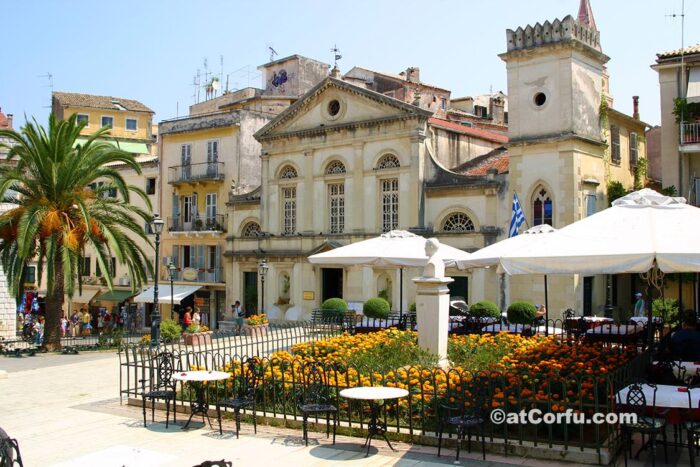
Corfu’s pioneering spirit is evident in its groundbreaking ventures, which played a pivotal role in shaping Greece’s economic and industrial landscape. The island’s forward-thinking approach is exemplified by hosting the inaugural commercial bank in the country, the Ionian Bank. This early financial institution not only laid the foundation for modern banking practices in Greece but also catalyzed economic growth and investment.
In addition to its financial innovation, Corfu stood at the forefront of industrial progress by operating the first electricity factory on Greek soil before 1860. This early adoption of electricity underscored the island’s commitment to technological advancement, setting a precedent for the rest of the country. Corfu’s initiatives in both banking and industrialization not only propelled its economic prosperity but also contributed significantly to the broader narrative of Greece’s development during a transformative period.
These milestones in Corfu’s history highlight its role as a trailblazer in economic and industrial spheres, showcasing a legacy of innovation that resonates beyond the island’s shores. By embracing novel concepts and spearheading groundbreaking ventures, Corfu not only demonstrated its commitment to progress but also left an enduring imprint on Greece’s economic and industrial evolution.
10. The Magnificent Esplanade Square
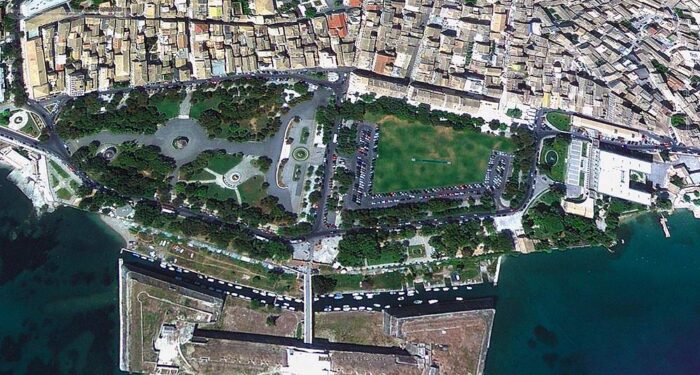
The grandeur of the Esplanade Square, recognized as the largest square in the Balkans, stands as an emblem of Corfu’s historical splendor and significance. This expansive and majestic square, adorned with graceful architecture and surrounded by landmarks that narrate tales of the past, encapsulates the island’s rich history and cultural heritage.
Bordered by neoclassical buildings and embraced by the Liston Promenade, the Esplanade Square exudes a timeless elegance that transports visitors to a bygone era. The square’s historical prominence is heightened by its role as the site of various cultural events, celebrations, and gatherings throughout the centuries. From military parades during Venetian rule to modern-day festivals, the Esplanade has been witness to the evolving tapestry of Corfu’s communal life.
The significance of the Esplanade Square extends beyond its sheer size; it is a living space where history converges with the present. Visitors and locals alike stroll along its grand paths, immersing themselves in the ambiance of a square that not only symbolizes the grandiosity of Corfu’s past but also serves as a dynamic focal point for the island’s vibrant cultural present.
11. Birthplace of Royalty
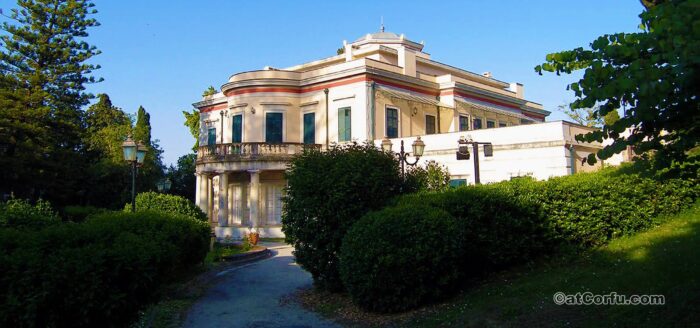
Corfu, as the birthplace of European royals such as Prince Philip of Edinburgh, boasts a significance that transcends national boundaries. The island’s historical allure is magnified by its connection to European royalty, adding a regal dimension to its cultural legacy. Prince Philip’s birth on Corfu contributes a distinguished chapter to the island’s narrative, intertwining its history with the broader tapestry of European monarchies.
The association with Prince Philip, who went on to become a central figure in the British royal family, elevates Corfu to a place of international prominence. His birth on the island adds a touch of aristocracy to Corfu’s already rich historical narrative, drawing attention to its captivating landscapes and cultural heritage from a global perspective.
Corfu, with its royal connections, becomes a symbolic bridge between nations, linking the island’s local charm with the broader European cultural and historical landscape. The birthplace of Prince Philip is not just a point on the map; it is a cornerstone in Corfu’s identity that resonates far beyond its shores, underlining the island’s enduring place in the annals of European history and royalty.
12. The Unique Sporting Scene
The presence of the only cricket team in Greece adds a unique thread to Corfu’s cultural fabric, diversifying the island’s sporting landscape and showcasing a pastime not commonly associated with the Mediterranean region. In a setting known for its sun-soaked beaches and traditional Mediterranean activities, the emergence of cricket introduces a delightful contrast, underscoring Corfu’s eclectic and inclusive approach to culture and recreation.
This cricket team becomes a cultural ambassador, not only promoting the sport but also fostering a sense of community and international camaraderie on the island. The matches played against the backdrop of Corfu’s scenic beauty create a harmonious fusion of sports and leisure, inviting both locals and visitors to participate in or witness an unexpected aspect of island life.
The adoption of cricket on Corfu, while atypical for a Mediterranean destination, encapsulates the island’s openness to embracing diverse influences and activities. It adds a layer of cultural richness that reflects the dynamic and inclusive spirit of Corfu, showcasing that even in a traditionally warm and sun-drenched environment, the love for cricket can find a home and thrive.
13. UNESCO Heritage and Multicultural Charisma
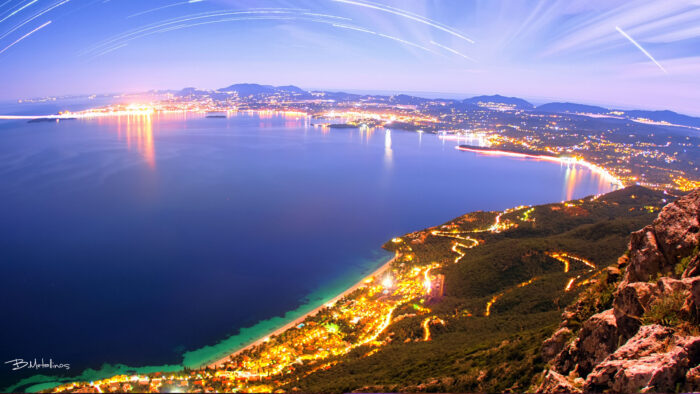
The old city of Corfu is not merely a UNESCO Heritage site; it stands as a vibrant and living testament to the island’s multicultural character, seamlessly harmonizing various influences in a captivating and dynamic way. As one wanders through its narrow alleys and squares, the architectural splendors unveil a rich tapestry that reflects the diverse cultural chapters written by Venetian, French, English, and Greek histories.
This historical enclave is not frozen in time but breathes with the pulse of contemporary life, where local traditions and cultural diversity are celebrated. The old city’s charming blend of neoclassical, Venetian, and Byzantine structures paints a visual narrative of Corfu’s centuries-old journey, where each architectural detail tells a story of cultural convergence and coexistence.
The vibrant spirit of the old city extends beyond its physical structures to encompass the bustling markets, lively festivals, and the warm embrace of its residents. Corfu’s old city is a living, breathing entity that honors its past while embracing the present, making it not just a UNESCO Heritage site but a spirited embodiment of the island’s multicultural essence.
Wrapping Up
The harmonious interplay of historical richness, cultural diversity, and natural splendor converges to crown Corfu as the paramount jewel of the Ionian Islands, a true standout in Greece’s tapestry of beauty and allure. From its captivating old city, designated as a UNESCO Heritage site, to the diverse terrains of sandy beaches, rugged mountains, and olive groves, Corfu encapsulates a breathtaking synthesis of the nation’s most enchanting elements.
Corfu’s ability to seamlessly blend influences from various epochs, its resilience against historical challenges, and its commitment to cultural vibrancy position the island as a cultural and natural gem. The presence of unique features, such as the only cricket team in Greece, further adds to its allure, showcasing a dynamic spirit that sets it apart.
As the paramount jewel of the Ionian Islands, Corfu beckons travelers to immerse themselves in its multifaceted charm, inviting them to explore a destination where every cobblestone, every coastline, and every cultural nuance contributes to a mosaic of beauty that truly distinguishes Corfu in the captivating tapestry of Greece’s landscapes.
More about Corfu
Corfu Blue Bus Routes Map (PDF)
Download this free, full-size PDF map of the Blue Bus route network, featuring all routes, major stops, and central pick-up points in Corfu Town.
Is Corfu Worth Visiting?
Corfu is definitely worth visiting. As one of Greece’s most beautiful islands, Corfu offers a unique blend of rich history, stunning landscapes, and cultural diversity.
Living Like a Local in Corfu: Daily Life on the Island
This guide delves into what it’s like to live like a local in Corfu, offering insights into daily routines, cultural practices, and the island’s unique charm.
Exploring Corfu’s Underwater World: Spots for Snorkeling and Diving
Corfu offers some of the best snorkeling and diving spots in Greece, with crystal-clear waters, vibrant marine life, and intriguing underwater landscapes.
Best Activities in Corfu for Families with Children
The island’s diverse offerings ensure that families with children of all ages can have a memorable and enjoyable vacation.
Secrets of Corfu and Hidden Gems for Curious Travelers
Corfu is a wonder of an island. If you’ve never explored it, it’s high time you did. Its golden beaches along with its salty seas make Corfu one of the most explored islands in Greece.


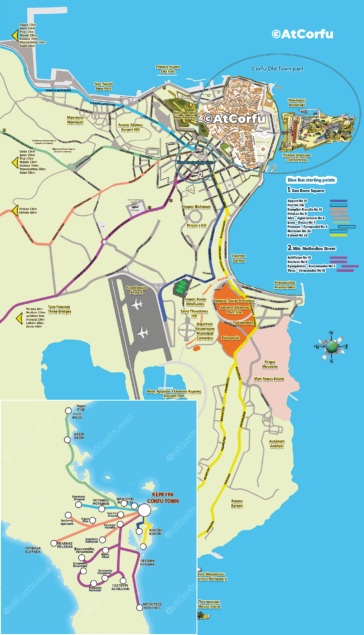
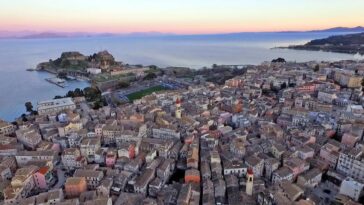
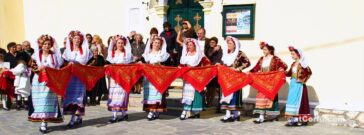

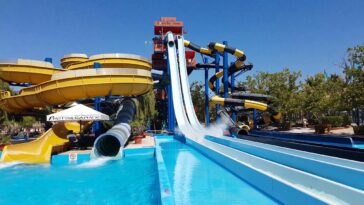


Comments